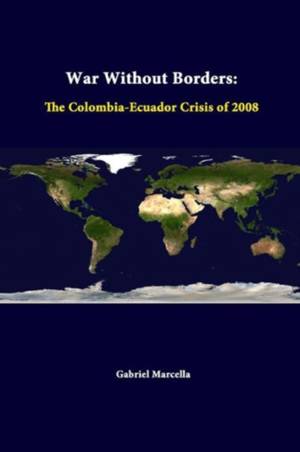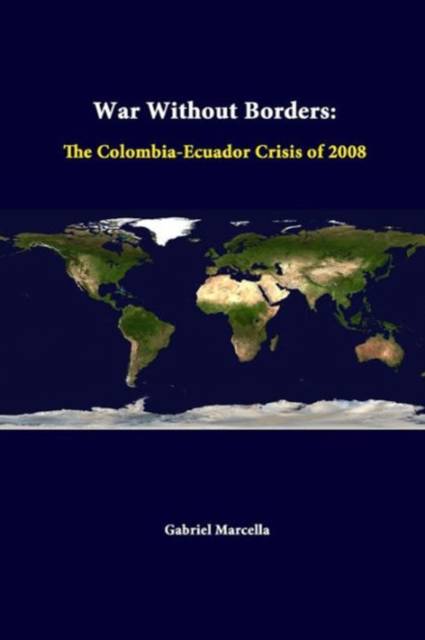
- Afhalen na 1 uur in een winkel met voorraad
- Gratis thuislevering in België vanaf € 30
- Ruim aanbod met 7 miljoen producten
- Afhalen na 1 uur in een winkel met voorraad
- Gratis thuislevering in België vanaf € 30
- Ruim aanbod met 7 miljoen producten
Zoeken
War Without Borders
The Colombia-Ecuador Crisis Of 2008
Gabriel Marcella, Strategic Studies Institute
Paperback | Engels
€ 21,45
+ 42 punten
Omschrijving
Unprotected borders are a serious threat to the security of a number of states around the globe. Indeed, the combination of weak states, ungoverned space, terrorism, and international criminal networks make a mockery of the Westphalian system of international order. Latin American countries are experiencing all of these maladies in varying degrees. The Andean region is under assault by a different kind of war that defies borders. In this context, Dr. Gabriel Marcella analyzes the lessons to be learned from the Colombian attack against the clandestine camp of the the Revolutionary Armed Forces of Colombia, which was located at an isolated area within Ecuador on March 1, 2008. This single incident and its aftermath had profound reverberations throughout the Hemisphere. The events leading to the attack illuminate the vulnerabilities of states, societies, and the international community to the actions of substate groups conducting criminal activities. Accordingly, the hemispheric community of nations...
Specificaties
Betrokkenen
- Auteur(s):
- Uitgeverij:
Inhoud
- Aantal bladzijden:
- 60
- Taal:
- Engels
Eigenschappen
- Productcode (EAN):
- 9781312289123
- Verschijningsdatum:
- 18/06/2014
- Uitvoering:
- Paperback
- Formaat:
- Trade paperback (VS)
- Afmetingen:
- 152 mm x 229 mm
- Gewicht:
- 99 g

Alleen bij Standaard Boekhandel
+ 42 punten op je klantenkaart van Standaard Boekhandel
Beoordelingen
We publiceren alleen reviews die voldoen aan de voorwaarden voor reviews. Bekijk onze voorwaarden voor reviews.











